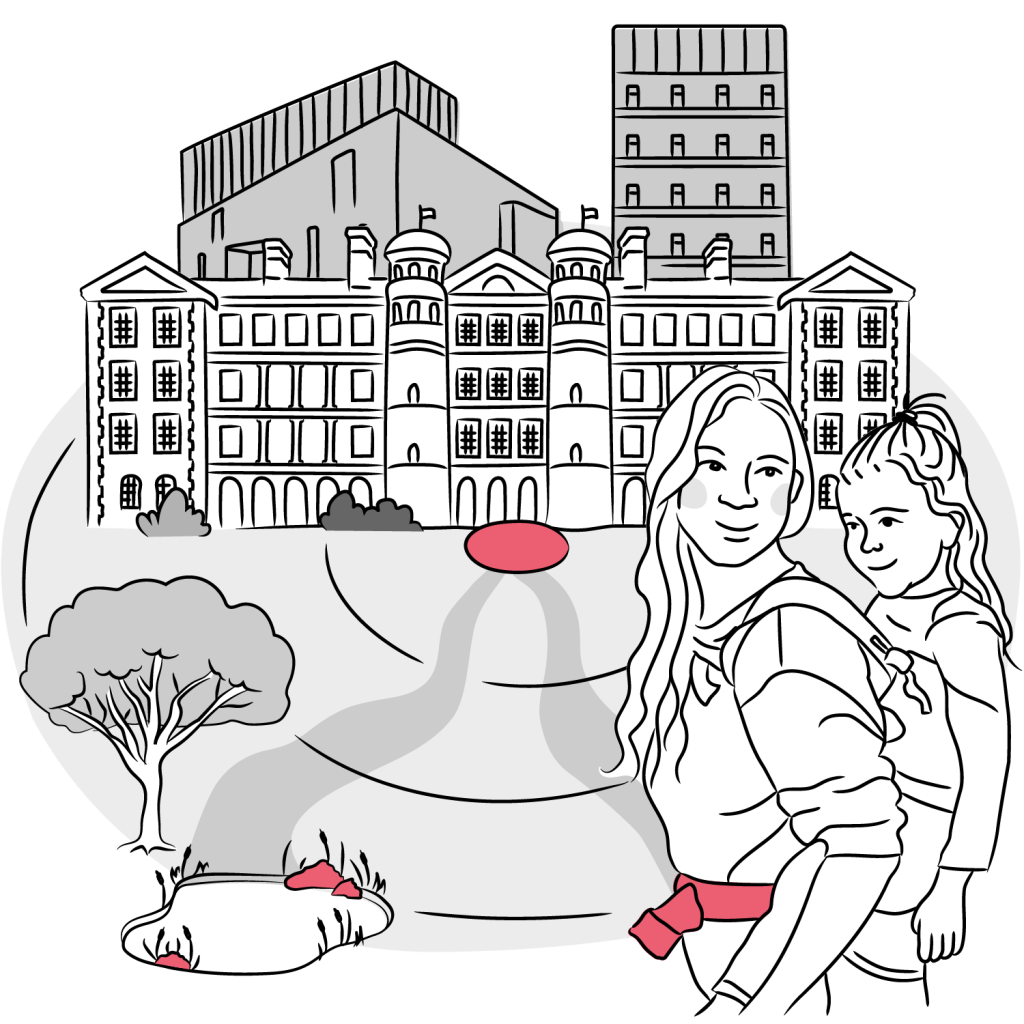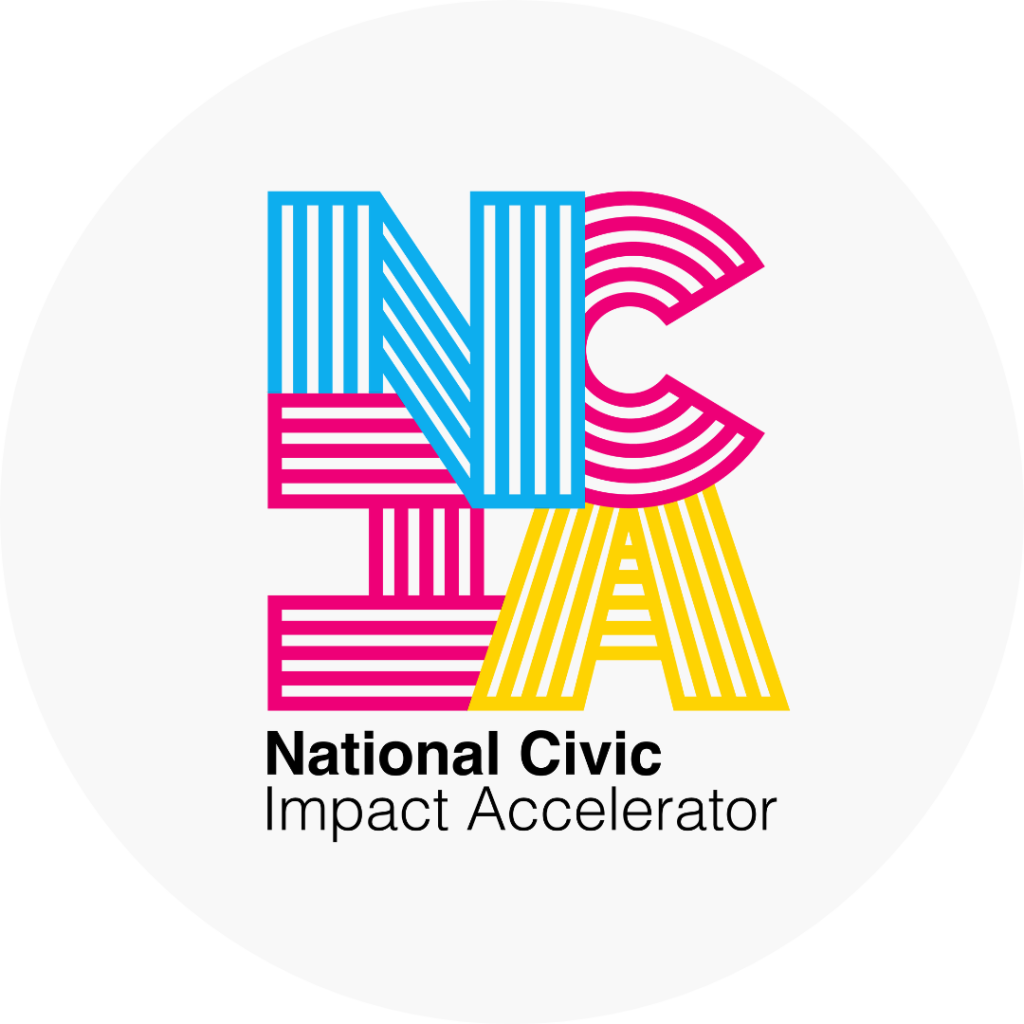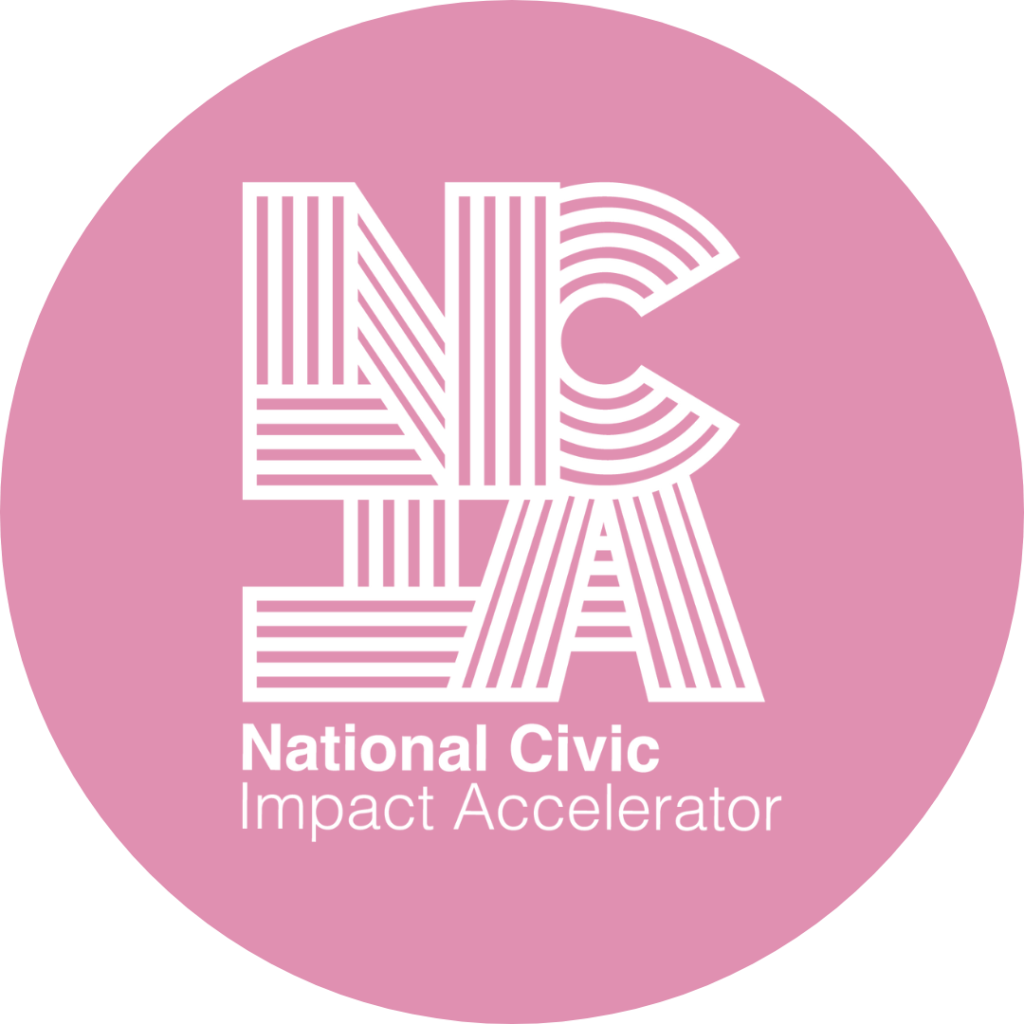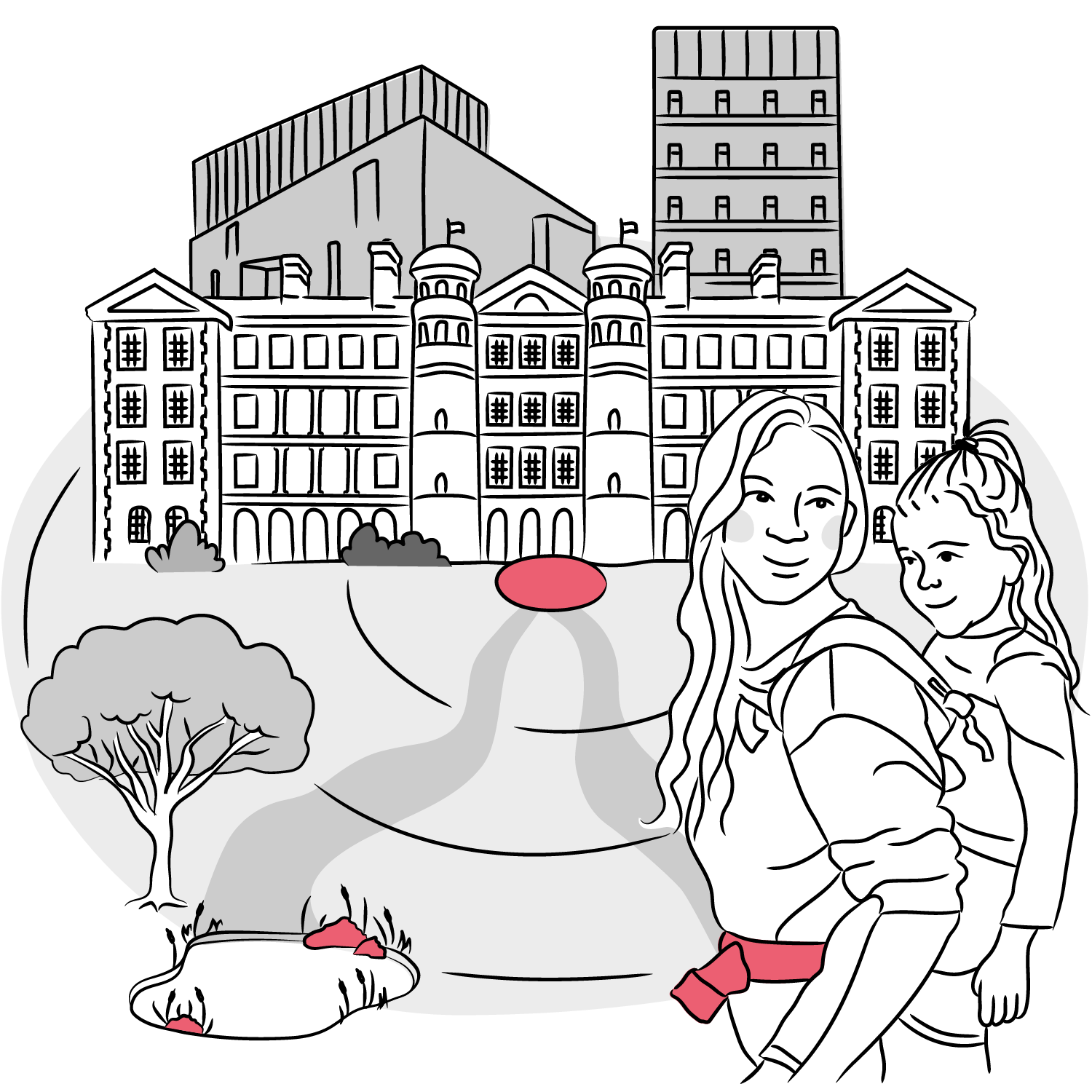
Welcome, Explorer, to the Civic Field Guide.
Every grand adventure begins with a map. This guide is yours, charting the terrains of a Civic University mission.
We've mapped the course ahead into seven essential terrains.
Think of each as a vital tool in your explorer's pack.

Place
The landscapes you traverse: physical campuses, local neighbourhoods, digital realms
People
Your expedition crew: the colleagues, students, and communities you'll work with on your journey
Partnership
The alliances you forge and strengthen along the trail: hyperlocal, regional, and global companions
Purpose
Your North Star: why you embark, the impact you set out to create, and the vision illuminating your path
Practice
The hands-on equipment: the methods, skills, and activities you develop and embed to drive impactWaypoints for Real World Impact
A Compass for Transformational Change
Turn civic intent into place-based impact. Learn more about the 14 waypoints across the 7 terrains of civic engagement.
Trek the Seven Terrains
Embark on a journey across the Seven Terrains: a framework designed to help universities see their civic role from every angle.
Each terrain reveals a unique perspective on how your institution connects, collaborates, and contributes to the places and communities you serve. By exploring them all, you'll gain a panoramic view of your civic landscape, and fresh inspiration for shaping the road ahead.

Place
In this terrain, we'll think of civic as physical location.
How do universities choose to describe their civic boundaries and how do their notions of place create different possibilities and challenges for action?
Universities must anchor their civic mission in their physical location, developing deep understanding of the specific geography, communities, and opportunities that define their place. This terrain recognises that authentic civic engagement begins with committed, place-responsive work that addresses the real needs and assets of local communities where universities are embedded. Rather than pursuing generic civic activities, institutions chart their impact through intensive local engagement that bridges neighbourhood-scale relationships with strategic regional partnerships.
Successful place-based working requires universities to develop comprehensive local intelligence, using tools and frameworks that help navigate complex local infrastructure while building sustained partnerships with key civic organisations. From understanding local government structures to mapping community assets, this terrain provides the foundation for all other civic work by ensuring universities are genuinely connected to and responsive to their place.

People
In this terrain, we'll think of civic as people-centred and relational behaviour.
Universities and their staff and students are actors in society. What are their collaborations, partnerships and relationships, and how can these be optimised?
Universities forge authentic civic impact by positioning communities as equal partners throughout the entire process of identifying needs, designing solutions, and implementing sustainable change. This people-centred approach explicitly recognises lived experience as genuine expertise, acknowledging that individuals who navigate challenges daily possess invaluable insights essential for developing effective, contextually appropriate responses. Rather than traditional consultation models, this terrain demands authentic collaboration where community members participate as genuine partners throughout entire project lifecycles.
Successful people-centred civic work requires universities to systematically create meaningful civic experiences that enable students, staff, and community members to develop active citizenship skills whilst building deeper connections to place and democratic processes. This involves cultivating belonging and democratic participation through authentic engagement in real-world challenges that matter to communities, developing practical skills in collaboration, advocacy, and democratic participation whilst contributing to genuine community benefit.

Partnership
In this terrain, we'll explore how civic involves building mutual agreements on shared priorities.
Relational behaviour needs to translate into place-based partnership with other 'anchors' of the community.
Relational behaviour needs to translate into place-based partnership with other 'anchors' of the community.
Universities maximise their civic impact by actively developing and participating in thematic partnerships that unite diverse civic actors around specific shared challenges such as climate change, public health, economic development, or social justice. These focused collaborations enable significantly more effective coordination of collective expertise and resources, creating opportunities for transformational impact that no single organisation could achieve independently. Universities contribute their distinctive research capabilities while learning from the practical knowledge of community organisations, local government, businesses, and other civic partners.
Authentic partnership requires universities to cultivate collaborative relationships built on genuine recognition of diverse forms of expertise, authentic power-sharing, and sustained commitment to mutual benefit across different community contexts. This approach transcends traditional institutional hierarchies by positioning universities as important but not dominant players within local collaborative ecosystems, contributing distinctive capabilities whilst explicitly respecting and amplifying community leadership and priorities through partnership structures that share decision-making power equitably.

Purpose
This terrain focuses on civic as a pathway to public benefit.
How do universities negotiate, describe, activate and evaluate the value they create though their civic activity, and frame their purposes for civic work?
Universities achieve greater overall impact by recognising that intensive place-based community engagement naturally complements and enhances their global and national activities rather than competing for attention and resources. This integrated approach acknowledges that many local challenges directly reflect global phenomena, whilst innovative solutions developed through deep local engagement often provide valuable insights applicable in other contexts worldwide. Universities strategically leverage their international partnerships, research networks, and diverse student populations to bring global perspectives into local challenges whilst sharing locally-developed innovations with international audiences.
Transformational civic universities position civic engagement as a fundamental, permanent mission that permeates all institutional activities rather than treating it as optional supplementary work. This comprehensive embedding requires strategic leadership that systematically weaves civic purpose throughout teaching, research, knowledge exchange, professional services, and estates management, ensuring civic responsibility becomes deeply embedded within institutional culture through deliberate policy design, strategic resource allocation, and coordinated oversight that creates sustainable foundations for enduring community impact.

Practice
In this terrain, civic is the practical action which leads to impact.
What are the ways in which universities can embed civic practices and behaviours into their academic activity and how can they use their 'anchor' role to benefit people and place?
Universities demonstrate authentic civic credibility by systematically aligning institutional operations with community priorities, ensuring university practices genuinely model the positive changes they wish to see in wider society rather than operating as disconnected spheres of activity. This comprehensive alignment requires examining all university operations – including procurement policies, employment practices, student services, campus sustainability initiatives, and estates management – to ensure coherence with community priorities and social values. Universities must model positive changes through their daily practices as employers, purchasers, service providers, and institutional neighbours.
Comprehensive civic practice requires universities to develop sophisticated measurement frameworks that integrate quantitative metrics with qualitative narratives, creating complete pictures of authentic community impact through both measurable outcomes and powerful community stories. This dual approach acknowledges that meaningful civic transformation manifests through numerical progress and rich narratives that illustrate how civic initiatives affect real people's lives, strengthen community capacity, and contribute to long-term social development across diverse geographic scales and community priorities.

Process
In this terrain, civic is seen as organisational culture.
What does being a 'civic university' mean for the ways that universities organise and govern themselves?
What does being a 'civic university' mean for the ways that universities organise and govern themselves?
Universities develop effective civic coordination by systematically mapping and understanding the complete range of civic themes and activities occurring across their institution, enabling strategic coordination of resources and efforts for maximum collective community impact. This comprehensive approach involves documenting civic engagement spanning all domains – from health and wellbeing through economic development, environmental sustainability through arts and culture – ensuring no important civic work remains isolated or under-supported whilst identifying synergies and avoiding duplication.
Continuous civic improvement requires universities to establish systematic learning approaches that capture valuable insights from direct experiences alongside broader external evidence, enabling ongoing refinement and enhancement of civic strategies and community impact. This learning infrastructure involves creating effective feedback loops that document and analyse lessons from both successful civic initiatives and challenges, understanding what approaches work effectively in different community contexts whilst remaining highly attentive to community feedback and partner insights.

Policy
In this terrain, we review the incentives or disincentives for civic action.
What are the policy and funding mechanisms which enable or hold back civic activity?
What are the policy and funding mechanisms which enable or hold back civic activity?
Strategic civic engagement requires universities to develop sophisticated capabilities for navigating complex multi-level policy landscapes, understanding how national, regional, and local (including institutional) policy frameworks create both opportunities and constraints for effective civic action. This comprehensive approach involves staying informed about policy developments across governmental levels that affect community development, higher education funding, and civic engagement possibilities whilst identifying where university influence can be most strategically applied to position civic work for sustainable impact.
Universities demonstrate authentic civic leadership by actively contributing to evidence-based policy development, systematically translating their research capabilities and institutional knowledge into practical policy insights that serve community priorities and enhance democratic governance. This involves mapping university expertise to local and regional policy priorities, translating complex academic research into accessible formats for policy makers, and piloting innovative approaches that meaningfully inform policy development processes whilst maintaining deep connection to community perspectives and grassroots insights.
The Wayfinder's Guide
Charting your path: 14 waypoints to route, connect and transform university civic engagement.
Your questions answered
Feeling a bit overwhelmed? Too many waypoints?
This short video is here to make things feel lighter. It gently clears up some common concerns and focuses on what really helps, so you can feel more confident and supported.
You don't need to know or do anything before you press play. Just watch when you're ready, take whatever feels useful for you right now, and leave the rest. Think of it as a friendly companion to reassure you that you're doing better than you think – and that small, simple steps are more than enough.
Fellow Explorers
Before you pack your gear, it helps to understand your role and others you might see on your journey. Here are some people who might find this guide helpful.

Civic Engagement Manager
Responsible for developing and delivering your university’s civic strategy, you seek practical support, sector insights, and evidence-based tools to help you build partnerships, evaluate impact, and secure funding for civic initiatives.Civic Engagement Manager
"I lead or support my university's civic engagement agenda and need evidence-based tools and insights to drive real impact in our local community."

University Senior Leader
Responsible for shaping your university’s strategic direction, you oversee civic, place, or external engagement at a senior level and are committed to embedding civic impact across the institution.University Senior Leader
"I lead on university-wide strategy and need accessible, evidence-based knowledge to embed civic engagement, align it with our core priorities, and enhance our institution's local and national reputation."

Community-Engaged Researcher
Responsible for advancing research and teaching that connects with local communities, you are building your academic profile, nurturing partnerships, and striving for greater recognition of your civic work within your institution.Community-Engaged Researcher
"I am an academic who collaborates with local organisations and wants my teaching and research to make a meaningful difference, while ensuring that my civic contributions are valued and supported by my university."

Community / Grassroots Leader
Responsible for leading a community organisation, you are focused on delivering frontline impact with limited resources and want practical support, evidence, and genuine partnership from universities to strengthen your work and benefit your local area.Community / Grassroots Leader
"I run or support a community organisation and need accessible insights, resources, and authentic collaboration with universities to help us do more for our community."

Student Union Representative
You lead your students’ union, championing students and local residents. You work with universities to raise your profile, increase your community impact, and make sure students have a positive experience- supporting their wellbeing, sense of belonging, and opportunities to get involved. You want to stay up to date with projects and partnerships that benefit your members and your community.Student Union Representative
"I lead my students' union and want to build partnerships, raise our profile, and make a real difference for students and our community."

Local / Regional Executive Leaders
You are responsible for, and have a stake in, the future of your local area. You look for clear evidence, actionable insights, and practical collaboration with universities to drive placemaking, tackle local challenges, and set ambitious standards for your organisation’s local impact and community work.Local / Regional Executive Leaders
"I lead or influence place-based strategy for my organisation and need accessible evidence, practical examples, and strong university partnerships to deliver positive change where I work."

Civil Servant
Responsible for shaping and influencing policy, you need clear, credible evidence and real-world examples to demonstrate how higher education institutions are driving local and national change, support your recommendations, and inform decision-making.Civil Servant
"I develop or advise on policy and need robust evidence and case studies to show how universities are making a difference in our region or nationally."

Head of Agency / Network
Charged with shaping national policy or place-based strategy, you need clear insights into local civic landscapes and practical guidance on partnering effectively with universities to achieve lasting place-based change.Head of Agency / Network
"I lead place strategy or policy development at a national network or agency and want to understand who matters in local civic systems, how priorities align, and how my organisation can collaborate more meaningfully with the university sector."
Meet the Cartographers
The Civic Field Guide was developed by Sheffield Hallam University as part of the National Civic Impact Accelerator (NCIA), funded by Research England, drawing from evidence and insights from the Institute for Community Studies, the National Coordinating Centre for Public Engagement (NCCPE), Queen Mary University of London, City-REDI at the University of Birmingham, the Centre for Regional Economic and Social Research (CRESR), the Organisation for Economic Cooperation & Development (OECD)
The Guide is a comprehensive suite of resources providing university leaders, civic engagement professionals and their civic partners with evidence-based methodologies, proven practices, and practical tools for creating sustainable, measurable impact through authentic partnerships.
We are grateful to participants of the NCIA's Action Learning Programme, whose experiences and insights helped shape this guide.
























